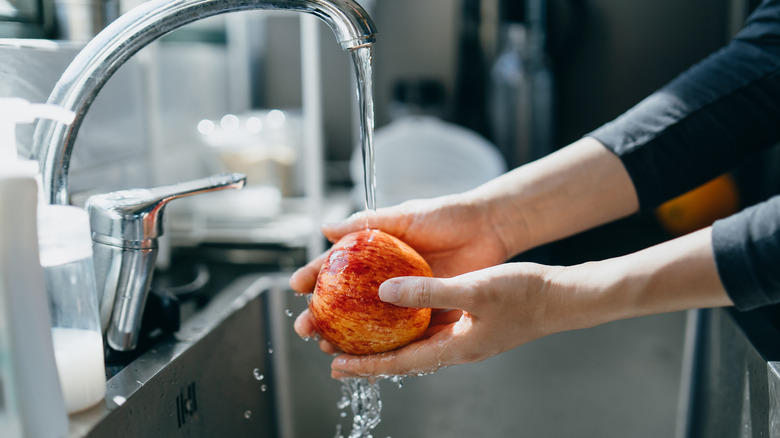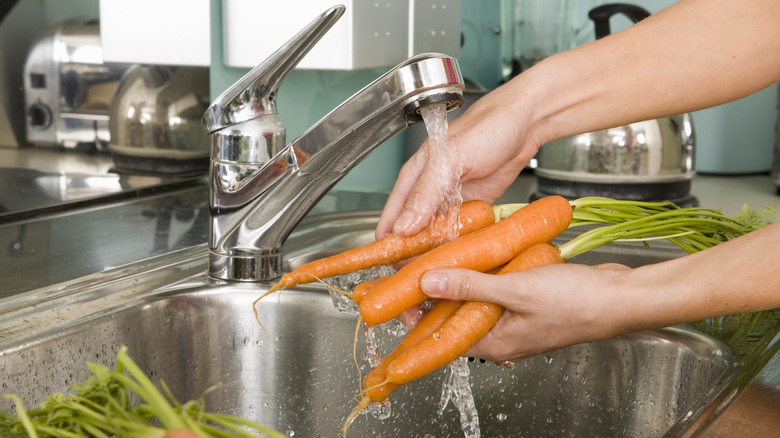Why You Need To Stop Washing Produce Before Storing It
Washing produce is not just something silly our moms nagged us about — it's actually important. Washing fruits and vegetables not only removes any dirt that may be left on them, but also removes potentially dangerous bacteria like listeria and salmonella. Washing is especially crucial for produce you might eat raw, since the bacteria won't be killed through cooking. Even a piece of produce like potatoes, which are always eaten cooked, should still get a rinse just to ensure a clean surface.
When you get home from the grocery store or farmer's market, it's important to make sure all the fruits and veggies are being stored in an environment for optimum freshness. There are few common mistakes in storing produce, like putting tomatoes in the fridge (don't do it). Another frequent mistake is washing produce before storing it.
Washing produce adds moisture to any piece of produce, which can increase the speed at which bacteria and mold grow. To keep your produce fresh longer, wait to wash it until right before you plan to eat or cook with it, and before you start peeling or cutting it so that bacteria from the outside layer or skin is not accidentally transferred to the inside. If you're doing meal prep or need to pre-wash produce for any other reason, it's best to dry the item with paper towels or a kitchen towel before storing it to remove as much moisture as possible.
The right way to wash your produce
While washing fruits and vegetables before eating them is a crucial step, not all washing is created equal. Some types of produce just need a quick rinse while others, like potatoes and carrots, could use a heftier scrub because they grow underground and tend to have more dirt caked on their outer surfaces. However, if something is labeled as pre-washed, like a box of mixed lettuce, it doesn't need to be washed at all, and in fact, rinsing pre-washed produce may cause cross-contamination on your kitchen surfaces in the process.
When the time comes, the best cleaner for produce is cold water; special produce cleaning sprays have not been found to be more effective and the FDA recommends against using them. In fact, using cleaning products other than water could actually do damage since produce has porous surfaces that can absorb something like a cleaning product. It's also important to know that while rinsing fruits and vegetables is important, it's not guaranteed to get rid of all dirt or bacteria. Don't forget to remove any stickers before washing since you want to make sure to wash the surface under the sticker (plus they become harder to remove when wet).

